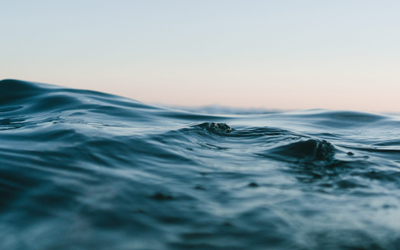The Water Element: Winter
Season – winter
Colour – blue/black
Sound – groaning
Emotion – fear
Odour – putrid
Yin organ – kidneys
Yang organ – bladder
Spirit – Zhi (will/determination)
Rules – bones and the head hair
Sensory organ – the ears
Themes – stillness, rest, retreat, introspection, contemplation, will power, endurance, self
preservation, death/rebirth
Climate – cold
Energy – absolute yin
Winter is a time of absolute yin: when nature seemingly dies and the earth is frozen. Just as
animals go into hibernation, so should we. Rest is the single most important thing to
replenish the kidney qi. It is the time to withdraw inwards and conserve one’s energy – and
to connect with our inner selves in stillness and contemplation.
The organs of the Water element are the Kidneys and the Bladder, which among other
things, rule water metabolism. In Chinese medicine, the kidneys are the storehouse: the
original source of qi, containing our genetic blueprint or pre-Heavenly Qi, which is inherited
from our parents and forebears.
The kidneys rule reproduction, growth and development and are said to be directly linked to
the Source of Creation. Nothing grows without water. In Five Element theory, Water is the
mother of Wood: Spring can only proliferate with a good supply of water.
As we age, we lose water and our bodies begin to dry out. Our bones and hair become more
brittle, our skin loses its elasticity. On a psychological level, our minds may lose their
flexibility. The classic texts state that we are born with a certain amount of breaths which
we use up depending on our lifestyle. In our Western culture, we tend to burn the candle at
both ends, depleting our kidney qi. Acupuncture, herbs and a nutritious diet can go a long
way to preserve the Water element.
According to the classics, the Kidneys contain Jing or Essence. Alongside Qi (Life Force) and
Shen (Spirit), Jing is one of the Three Treasures. These precious substances should be
guarded, preserved and cultivated. In the Chinese medicine tradition, this can be achieved
through regular acupuncture, herbs, qi gong and tai chi.
Jing is essential for our growth and development. It produces bone marrow and bodily fluids
such as semen, synovial and amniotic fluids. Jing determines the quality of our lives: good
Jing brings us health and vitality. Jing is needed at our crucial developmental stages such as
puberty and menopause.
The Jing and antenatal Kidney Qi govern the skeleton, spine, bones, brain and teeth, and
manifests in the head hair. Premature greying or falling hair are signs of declining Essence.
Poor Jing may result in a sickly constitution, arrested childhood development or
osteoporosis in the elderly.
The Kidneys are said to house the original Yin and Yang: the left kidney being yin and the
right kidney housing the yang or Ming Men fire (“Gate of Life”), the divine flame which
keeps us alive. When we die, our bodies go cold. It is important not be too active in winter
so as not to disperse the kidney fire.
Kidney Yin deficiency manifests in “empty heat” symptoms such as hot flushes and night
sweats, while the Kidney Yang deficient patient usually feels cold and listless and often has
poor fluid metabolism. Phlegm or oedema indicate that the kidney fire is weak and unable
to transform water.
In Chinese medicine, the Bladder has a much broader function than simply excreting fluids.
It is the one of the most dynamic channels in the body, starting at the inner canthus of the
eyes, running over the top of the head, alongside the spine and down the back of the legs,
lateral sides of the feet and ending at the nailbed of the little toes. Points along the Bladder
channel are particularly indicated for back pain and leg problems.
On an emotional level, the kidneys house fear and future-based anxiety – about things that
might happen and more often than not, do not come to fruition. Fear is a necessary survival
mechanism and helps us to assess risk. The Kidneys are said to contain the Will power, the
will to survive. Water is durable and adaptable: it takes on many forms from vapour to fluid
to solid ice. Psychologically, a healthy Water element helps us to endure what life has to
throw at us.
In times past, we would survive on the preserves prepared and stored at the end of
summer. Foods that help us preserve our kidney qi are hydrating and nourishing and the
associated taste is salty. In the winter, it is better to have warm, nourishing food rather than
cold, raw foods. Warming spices such as garlic, ginger and cardamom help to warm the
kidney qi.
Tips for winter:
Foods to preserve the kidney are nuts, seeds, legumes, shellfish, salt water fish, seaweed,
dark coloured berries, root vegetables, whole grains, stews and soups.
Remember to keep warm in the winter, protecting the top of the head and the bottom of
the feet. In this way, we conserve our warmth and protect our qi.
Tune inwards. Winter is a time for being silent and reflective. Meditation is an excellent way
to connect with ourselves and to germinate ideas for the spring time.

Recent Comments